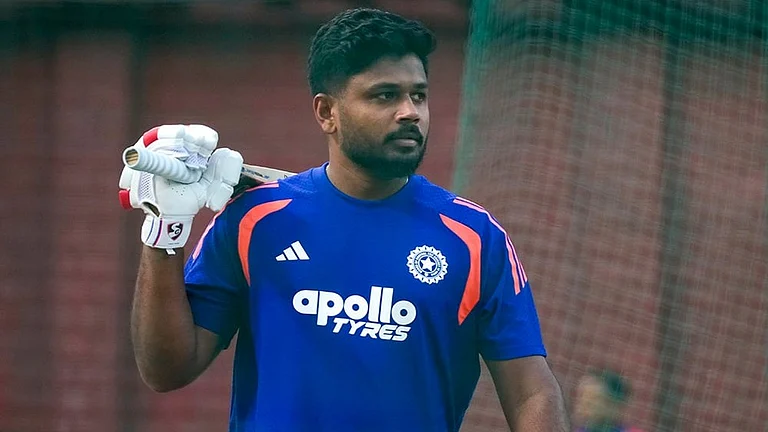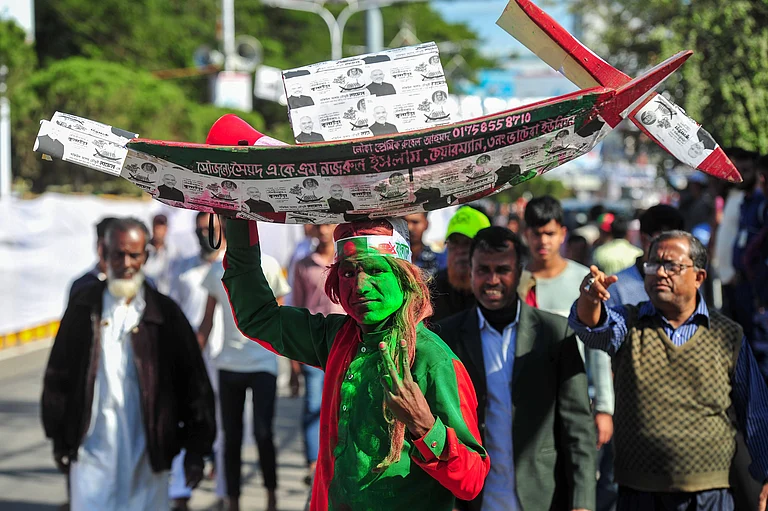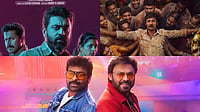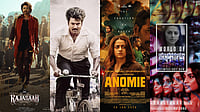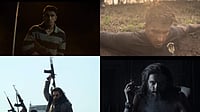Children can't fight for their rights but we adults can fight for their rights as well as their well-being, isn't it? Deepa Bhatia along with her husband filmmaker Amole Gupte presented to the audience 'First Act', a docu-series on Prime Video that shows the struggles of child artistes and their parents in the Hindi TV and film industries. The 6-episode series makes us rethink how the children are being treated, how parents overload their kids with their dreams, how they deal with failures in the industry and more. 'First Act' is an eye-opener and all thanks to Deepa for diving deeper into such a sensitive topic with elan.
'First Act' has been getting positive responses. Outlook India recently had a freewheeling conversation with Deepa Bhatia where she spoke about how the idea came to her, the challenges she faced while making it and a lot more. Here are the excerpts from the interview.
How did you come up with the idea of making a show on this topic?
For all of us who work in this profession, there is a sense that it is a bit rough on the children. And in parallel to that I was seeing my husband, Amol (Gupte) doing things in a very comfortable way. He was doing workshops, there was never any typical set behaviour and it was always done on holidays. Then I realised that there are two ways through which we were engaging our children. So, there were some very positive experiences of children that they were sharing. So, I was researching it actually. At an early level, I started talking to child actors, going to Aaram Nagar, looking at how auditions are done, and meeting lots of families just to understand why they do it, what is the system like, how they go about it and somewhere along the way, we kind of realised that there is a story that needs to be told. So, that was genesis.
It is such a sensitive topic. What were the challenges while making a show like 'First Act'?
You said the most important point. It's the most sensitive subject. I think at the end of the day the biggest challenge was to be very mindful of what to capture and then what to show. I had to be very mindful of that. We were hearing a lot but we were careful in terms of how we were presenting it in the show and in what was actually featuring in the episodes because you want to be sensitive to the emotions and their feelings. And also, some understanding because different people are doing different things because they are in different corners in life and no judgements passed. Sometimes, people are really stuck and then this becomes something which can help you type over a phase of life. I think the most important thing was to be cautious while engaging with them to win their trust and ensure that I represented their narratives fairly and truthfully. I think that was the biggest challenge.
Shooting a docu-series is very challenging but the important part was to capture the moments.
How did Amole Gupte help you with the project?
It was a blessing to have him because he instinctively has a very deep understanding of children. It was very helpful to raincheck with him what should be part of the show and what not, and how to handle certain kinds of narratives. He was like a hawk watching over my back and making sure that we didn't cross the line of anything. He would also react to the episodes and help me. Sometimes the children wanted to meet him, some families wanted to be convinced meeting him that they should be part of the show. He was with me emotionally every step of the way making sure that philosophically, morally, and ethically the show was done in the right manner
Without him, this idea wouldn't have come to me and I wouldn't have explored this. He repeatedly emphasised that children's well-being needs to be protected much more on our shooting floors than what actually happens.
Are there any measures or organisations to safeguard the rights of children in the industry?
There are guidelines by CINTAA and Amit Behl, has spoken about it. The framework is there but it's selective. Like a good production house does take care of. It's not always dark. But, in the world of television which is more cut-throat or budgets are lesser or smaller production houses where there may not be so many protocols followed or governance being implemented, then I think it can be people don't take it too seriously. If you see episode 5, so many children have spoken about the long working hours. It's quite common. It doesn't happen every time but it can happen. It's not supposed to happen. There is a limited time children are meant to spend on set and I think with awareness and a little bit of implementation, I think all of us can do it. I am very confident that it will happen and the industry is a good place to be. It's just a matter of us becoming very much mindful of the well-being and interests of the children.
What will be your message to the parents who put pressure on their children to be in this profession?
Forget this profession, I think across the board as parents we should stop imposing our vision on our children. That's what films like '3 Idiots' and 'Taare Zameen Par' were made. It becomes a little acute in this profession because the setback like if you don't get a part, the setback is very public. I don't judge any parent. I think they come from their expectations from their own compulsions. They are also victims as Amole said. There should be a bit of sensitivity towards children. This is a community that can't fight for their own rights, so as parents, we should be a little bit caring and respectful towards them. Also, we should allow them to take their decision. When you allow them to choose, they really make intelligent and meaningful choices.










